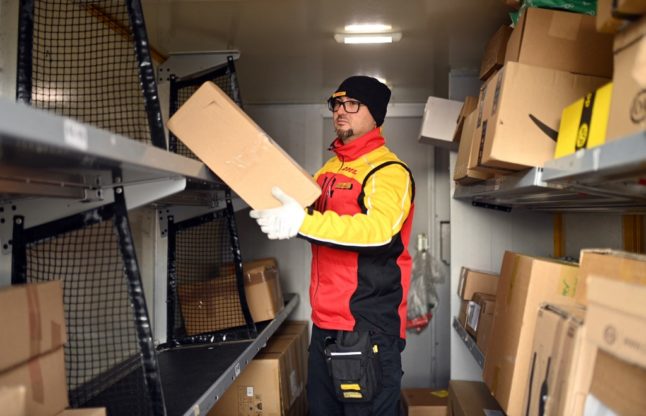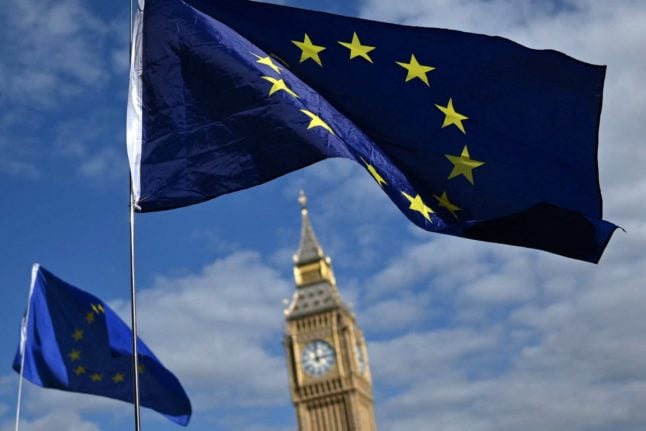One of the first things many people will have noticed since the United Kingdom left the European Union is it is no longer possible to send and receive parcels between the UK and Austria without filling in a customs form.
READ MORE: Austria to investigate ‘flood of complaints’ against parcel delivery companies
New rules that came into force on January 1st mean new taxes and charges now apply to almost everything that goes back and forth between the two, including gifts, second hand items, products bought on Amazon or eBay and from private sellers.
So is there any way to avoid paying customs charges and extra tax?
Gifts valued up to a certain amount do not attract charges
If people in the UK are sending you a parcel with a gift worth under €45 or £39, they should say “No commercial value”or “Birthday gift” or “For private use only”, on the customs form and state the value is below the threshold.
But gifts worth more than this amount are eligible for VAT and, if valued at over £135 (€156) customs duties, with the recipient receiving the bill.
Sending parcels as gifts to the UK
When sending parcels to the UK from Austria, the sender should fill in a customs form, which you can find here.
You should print out two copies of the completed form, and hand it in when sending the package.
Importing packages from the UK into Austria
When importing packages for a business from the UK into Austria, the shipping company may ask you for the correct HS codes, which can be found on the UK government’s website.
You can find out more about importing goods here.
Exporting goods from the UK to Austria
In order to give businesses time to adapt, the UK government has decided that imports into the UK from the EU can operate as normal until 1st April. From that date, under current plans, all items of animal origin such as meat, honey, milk or egg products, as well as regulated plants and plant products, will require full documentation and, where necessary, veterinary certificates to be sold in the UK.
From 1st July, all companies exporting to the UK will be required to fill out full customs declarations and goods could be subjected to physical checks at new UK customs centres.
So from 1st April, exporting will become more complicated. UK import clearance can only be handled by a UK-based company. The UK company must apply for a UK EORI number and carry out an import declaration.
All others have to hire a British “indirect representative” to carry out the import process. Until the end of June 2021, the import declaration can be made as “entry in the declarant’s records” and a complete import declaration can be submitted later.
You can find out more here.
How are businesses finding the post-Brexit world?
The Local spoke to John Szewczuk, the owner of Bobby’s Foodstore in Vienna, which sells British and American foodstuffs.
He said he had been unable to import any British goods since Brexit until March, and was mainly relying on goods he had stockpiled until December.
Situation ‘really bad’
Szewczuk said the situation since January had been “really bad”. Due to a lack of correct labelling he has been unable to import any items containing animal products, including milk and butter, from the UK since January.
He received his first post-Brexit shipment of Marmite and tea in March, and said he had to pay an extra 10 to 15 percent in new customs charges for the products. He is now running low on cereals including Rice Krispies and All Bran.
Due to the butter or milk content, he is currently unable to import chocolate, biscuits or shortbread from the UK.
Szewczuk says these requirements were already in place for the American products he imports, but these have labelling which allow them to be imported into the EU.
He said in the UK, even large firms such as Nestle have yet to introduce labelling which would allow the goods to be imported.
He has been told the situation should improve around the end of March.
“Learning curve”
Richard Holmes, who makes and sells British sausages from a company called Britwurst in Vienna, said he had found it a “learning curve” trying to import a pea husk ingredient from the UK for his gluten-free bangers.
First his shipping company asked him to provide the HS codes, which he had to look up on the government website.
He says his shipping company admitted they were confused about the new regulations, and were behind on deliveries to Europe due to the new paperwork.
One of his two packages was delivered without problems, attracting a €8 customs charge and €10 admin fee on goods worth £35.
The second parcel was sent without the customs paperwork and is being held at the post office. He has not managed to collect it.
He said he was looking into buying his ingredients from France in future.
Impact on research
Student researcher Victoria James said the changes in import rules had affected her research into immunology, as essential reagents, which she could only buy from the UK, were getting held up in customs, leaving her unable to plan experiments. She said she believed this problem would be affecting many science researchers in Europe.



 Please whitelist us to continue reading.
Please whitelist us to continue reading.
Member comments